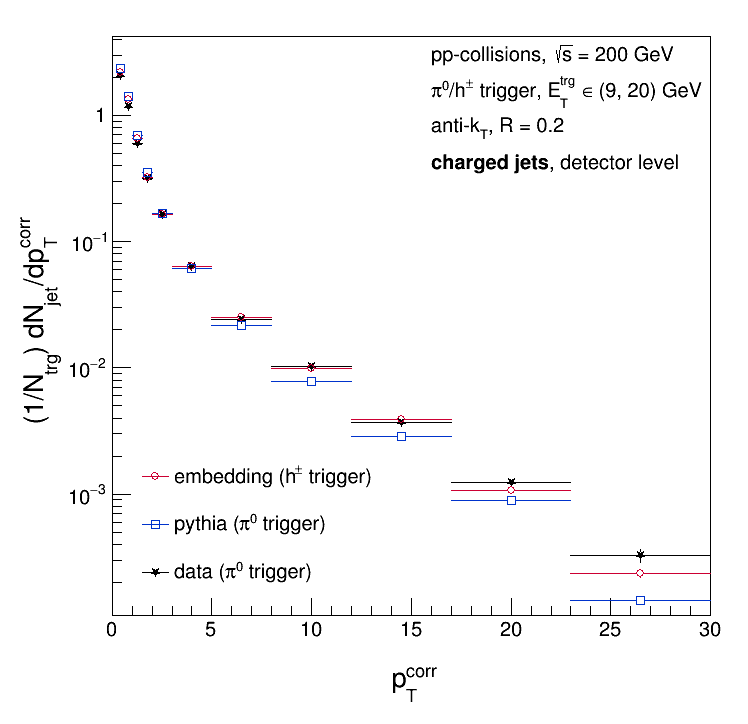Update 03.28.2019 -- Run 9 pp: charged jet comparisons
I suspect I might have unraveled what's going on between Pythia8 and the embedding. Consider this post:
Now, below I compare the charged jet distributions for embedding, Pythia8, and data. I've triple-checked everything to make sure all the jet-finding parameters were the same.

Which are the same distributions (as we would hope) that led us on this wild goose chase:
But now this all adds up: the trends seen here (between the Pythia8 and embedding distributions) are very, very similar to what we see in the particle-level track distributions. I would expect there to be differences between the charged hadron-triggered and pi0 pTtrk distributions because the charged hadron triggers include secondaries. Moreover, I would anticipate this difference to propagate to the jet distributions; especially since we've been working with such small radii (R = 0.2). That's what we see here.
The fact that the embedding distribution describes the data better than Pythia8 also makes sense. Our pi0 selection isn't perfect: the pi0 sample is going to be contaminated by secondaries. This may be a small effect, but -- to my knowledge -- we don't correct for secondaries in the pi0 sample.
Now, of course, we need to figure out what to do about this.
- dmawxc's blog
- Login or register to post comments
